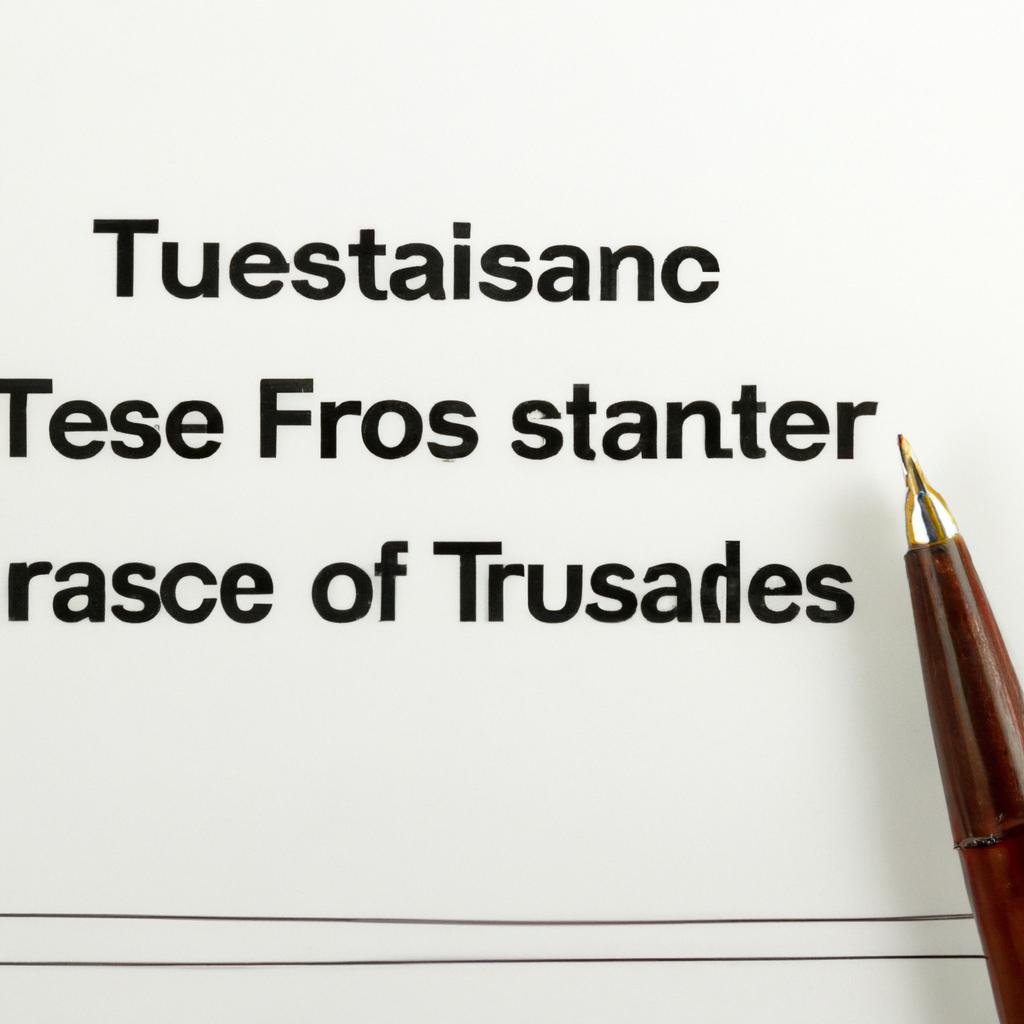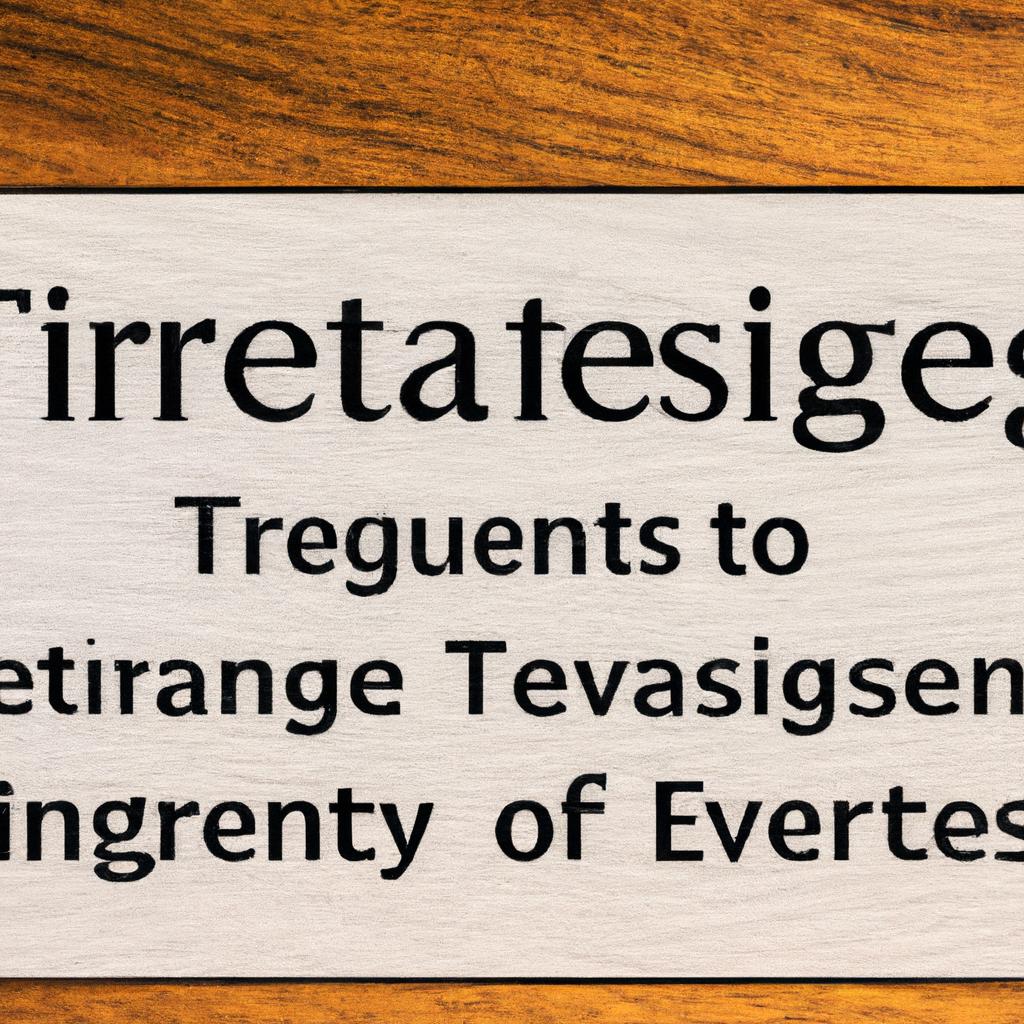As seasoned practitioners in the intricate realm of estate planning, probate, elder law, Wills, and trusts, our team at Morgan Legal Group in New York City is well-versed in the nuances of trustee fees. In this article, we will delve into the concept of typical trustee fees, examining their significance and providing insights into the factors that may influence their determination. Join us as we navigate the complex landscape of trust administration and shed light on the customary compensation structures for trustees.
Understanding the Structure of Trustee Fees
Trustee fees are an essential aspect of managing a trust, as they compensate the trustee for their time, effort, and expertise in overseeing the trust’s assets and distributions. While trustee fees can vary depending on the specifics of the trust agreement and the trustee’s responsibilities, there are some common structures and considerations to keep in mind.
Typically, trustee fees are calculated as a percentage of the trust’s assets under management. This percentage can range from 0.5% to 2% or more, depending on the complexity of the trust, the trustee’s level of expertise, and the market conditions. In some cases, trustees may also charge a flat fee or an hourly rate for their services. Additionally, trustees may be entitled to reimbursement for expenses incurred in managing the trust, such as legal fees, accounting fees, and administrative costs.

Factors Influencing Trustee Fee Determination
When determining trustee fees, there are several factors that come into play. These factors can vary depending on the complexity of the trust, the responsibilities involved, and the location of the trustee. Some common include:
- Size of the trust
- Complexity of the trust assets
- Responsibilities of the trustee
- Location of the trustee
- Experience and expertise of the trustee
Typically, trustee fees are calculated as a percentage of the trust’s assets, ranging from 1% to 2% annually. However, some trustees may charge an hourly rate or a flat fee. It is important to carefully review the trustee agreement and fee structure before agreeing to work with a trustee. At Morgan Legal Group, we strive to provide transparent and fair fee structures for our clients, ensuring that they receive the best possible service at a reasonable cost.

Strategies for Negotiating Trustee Fees
When negotiating trustee fees, it is important to consider the scope of services provided by the trustee. Understanding the responsibilities and duties involved in managing a trust can help determine a fair and reasonable fee structure. Some strategies to consider when negotiating trustee fees include:
- Comparing Rates: Researching and comparing trustee fees charged by other professionals in the industry can provide a benchmark for negotiations.
- Customizing Services: Tailoring the trustee services to meet the specific needs of the trust can help justify the fees charged.
- Performance-Based Fees: Implementing a fee structure that is based on the performance of the trust can align the interests of the trustee with the beneficiaries.
It is also essential to have a clear and transparent fee agreement in writing to avoid any misunderstandings or disputes in the future. By outlining the services to be provided, the fee structure, and any additional charges, both parties can ensure a smooth and mutually beneficial trustee arrangement.

Best Practices for Establishing Trustee Fee Agreements
When establishing trustee fee agreements, it is crucial to adhere to best practices to ensure clarity and fairness for all parties involved. Here are some key considerations to keep in mind:
- Define Responsibilities: Clearly outline the responsibilities of the trustee in the fee agreement to avoid any misunderstandings or disputes in the future.
- Fee Structure: Establish a transparent fee structure that reflects the complexity of the trust and the services provided by the trustee.
- Reasonable Compensation: Ensure that the trustee’s compensation is fair and reasonable based on market rates and the trustee’s expertise.
| Trustee Fee Agreement | Recommended Action |
|---|---|
| Define Responsibilities | Clearly outline trustee responsibilities in the agreement. |
| Fee Structure | Establish a transparent fee structure based on trust complexity. |
| Reasonable Compensation | Ensure fair compensation matching market rates and expertise. |
Q&A
Q: What are typical trustee fees?
A: Typical trustee fees can vary depending on the type of trust and the services provided by the trustee.
Q: What factors can influence trustee fees?
A: Factors such as the size of the trust, the complexity of the assets, the level of services required, and the experience of the trustee can all influence trustee fees.
Q: How are trustee fees typically structured?
A: Trustee fees are typically structured as either a flat fee, a percentage of the trust assets, or a combination of both.
Q: Are trustee fees negotiable?
A: It is possible to negotiate trustee fees, especially if the trust is particularly large or complex, or if the trustee is providing additional services.
Q: Are there any hidden costs associated with trustee fees?
A: It is important to carefully review the fee structure and contract with the trustee to ensure that there are no hidden costs or additional fees that may arise.
Q: How can I find a trustee with fair fees?
A: It is recommended to research several potential trustees, compare their fee structures and services, and ask for references from other clients to ensure fair pricing.
Future Outlook
In conclusion, understanding the typical trustee fees associated with managing a trust can help individuals make informed decisions when selecting a trustee. By knowing what to expect in terms of costs, individuals can confidently navigate the complexities of trust administration. Trustee fees may vary depending on the specifics of the trust and the services provided, so it is important to discuss fees upfront and ensure transparency throughout the process. Ultimately, by finding a trustee who aligns with your needs and budget, you can establish a solid foundation for the successful administration of your trust.

